‘Deja vu’: NSW live music industry in crisis after singing and dancing rule changes
‘The amount of anxiety within the music industry is just out of control – especially when we thought we had this window where we’re back,’ said veteran tour promoter John Zaccaria.
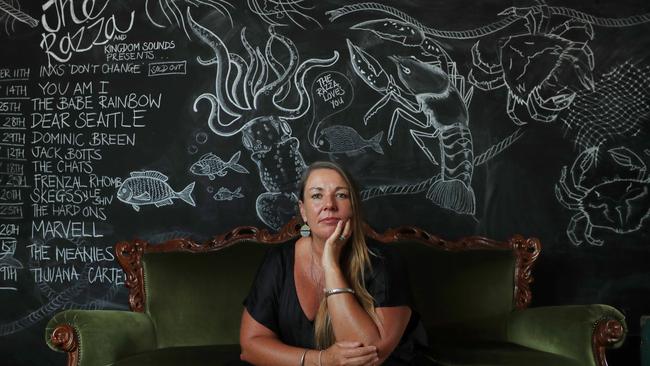
The live music industry in Australia’s most populous state is in crisis, amid new NSW Health rules that prohibit singing or dancing at any concert or festival, effectively banning all live music performances for the foreseeable future.
The sudden shift in public health policy this week – following a rapid rise in Covid-19 infections across much of the nation – came less than a month after the NSW government claimed it was reopening its economy from December 15.
Festival promoters and music venue owners had booked bumper calendars and dared to hope that this summer might at last allow them to stage events at, or near, full capacity for the first time in nearly two years.
This was shattered in the space of a few legislative sentences that came into effect on Tuesday.
On Monday afternoon, chief health officer Kerry Chant signed an amendment to the NSW public health order whose stated objective was “to prohibit singing and dancing by persons attending music festivals”.
A new clause in the order stated that “an occupier of premises at which a music festival is being held must ensure that […] no person sings or dances on the premises other than a person performing at the festival, or a person rehearsing to perform at the festival”.
In other words: the NSW government did not ban live music outright; instead, by imposing an onerous task on operators to self-police their events, it made it impossible for live shows to be held in any realistic sense.
The policy shift forced the swift cancellation of Grapevine Gathering, an outdoor winery concert in the Hunter Valley which had sold 16,000 tickets to an event that was set to take place on Saturday and employ about 1400 people.
On Tuesday afternoon, its organisers announced on social media that the festival could not proceed due to changes in NSW Health restrictions.
“This is a devastating blow not only to the live music industry, but also to regional tourism,” organisers said in a statement. “A projected loss of over $5.2m to the greater Hunter Valley region is expected from this cancellation.”
Venues of all sizes are affected by the prohibition on singing and dancing. The Narrabeen RSL, a 65-year-old not-for-profit club on Sydney’s northern beaches, had a near-capacity concert with acclaimed rock band You Am I booked for Friday night.
A sold-out crowd at this venue, known colloquially as “The Razza”, typically involves about $14,000 in turnover and the employment of about 12 staff.
On Friday night, the band room – whose full capacity is 500, but is currently 250 due to density restrictions – was silent and empty, just as it will be until January 27, which is the earliest date that the amendments to the NSW public health order may be lifted.
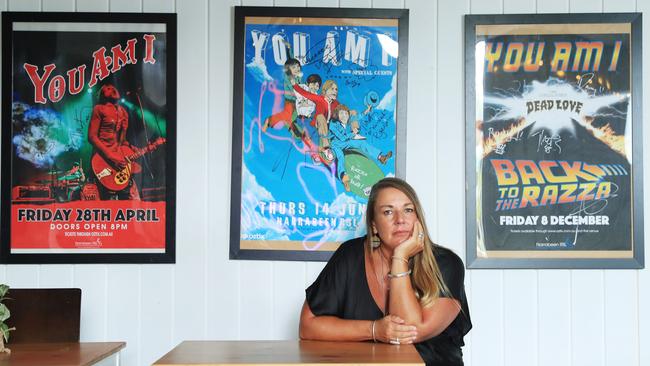
“We are probably the only venue left on the northern beaches that has a consistent program of ticketed, original touring artists,” said venue manager Claire Morris, who was forced to move the You Am I gig to April 22.
“We try to book up to five shows a month – but there’s no way that at the end of this month, this is going to be back to normal in NSW. It’s a lockdown with no financial support, that’s what it is.
“There’s nothing in place for our industry to protect us. This is no fault of our own; we haven’t caused this, but we are expected to somehow push on, like Scott Morrison keeps saying – but we can’t push on when there’s no customers and no revenue.”
When NSW premier Dominic Perrottet was asked about music festival cancellations during a press conference on Friday, he said, “I very much appreciate the sacrifices those festival organisers have made. When we made those changes last week, the majority of events have continued over this period of time; a number have had to be postponed.”
“Over the last 12 months, where there’s been a substantial impact on festivals, we’ve provided financial support to help get them through, and we will do the same again,” said the NSW premier. “I know the treasury and their team are working very closely on it.”
During interviews with senior industry figures this week, The Weekend Australian heard widespread concern and despair.
Live music workers tend to be made of tough stuff, but two years into the pandemic, their reserves of resiliency are just about running on empty.
Chris O’Brien, general manager at heavy music event promoter Destroy All Lines, said: “There’s zero confidence in governments, because anything they tell us now, how are we supposed to believe it? I think it’s beyond anger now. A lot of the people I speak to, from a mental health perspective, it’s just about hanging on and making sure your staff are okay, because they’ve been pretty battered and bruised for a couple of years straight now.
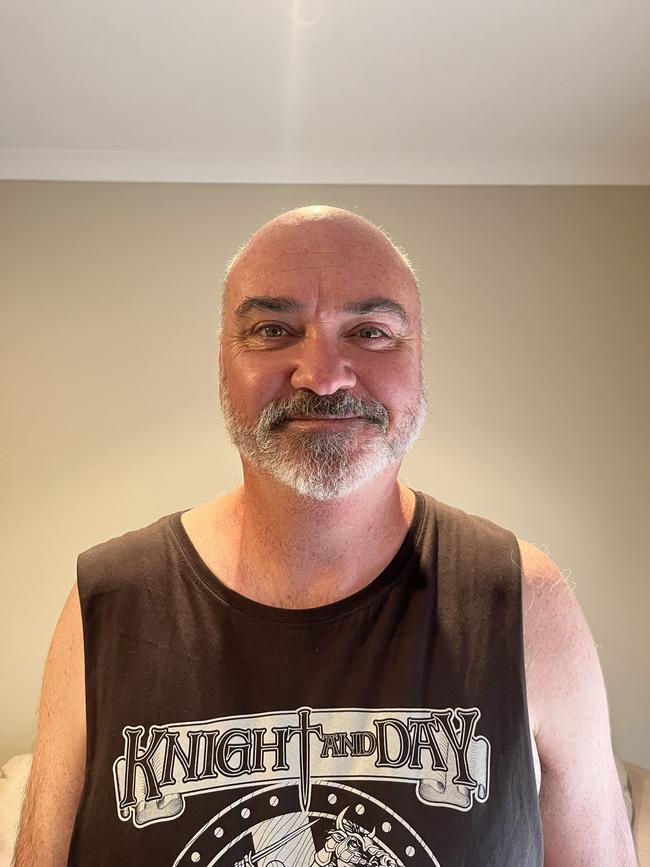
“We’ll keep fighting – but at the moment, it’s as low as the industry has ever been.”
Major international tours are becoming affected, too. On Thursday, British performer Rod Stewart cancelled his nine-date Australian tour of indoor arenas and outdoor wineries, which was set to begin in Perth on March 12.
“My thoughts are with all your families at this difficult time as we come out of the joyous and hopefully safe holiday season and I look forward to returning to Australia as soon as the health situation permits,” Stewart said in a statement.
“I’m absolutely gutted with disappointment and when I do eventually get there we‘ll have the party to end all parties. Guaranteed!”
In a statement, promoter Live Nation said the Stewart tour cancellation was “due to the ongoing surge of Covid in Australia and the reimposition of entertainment venue capacity limits in several states”.
It’s worth recalling that in early September, many of the biggest businesses and recording artists in Australian music lent their names and faces to backing an industry-funded advertising campaign, #VaxTheNation, to encourage punters to get vaccinated in order to end interruptions to interstate touring.
Mushroom Group chief executive Matt Gudinski told The Australian at the time, four months ago: “The only way out of this for the live sector is vaccination. We’re not far from being back to going to gigs, socialising and using music in the powerful way we all do, to live our lives.”
This belief was widely held by music industry workers, particularly those who had chosen to stick with their careers across more than 18 months of stop-start touring due to lockdowns and border restrictions. Plenty of skilled, experienced people have left the sector and are unlikely to return.
Nevertheless, music fans and workers alike thought they’d done the job by rolling up their sleeves, getting the jab and meeting the goals set by state governments to trigger a return to normalcy.
They pictured pumping bar rooms and heaving festival fields packed with double-vaxxed-or-boosted bodies, young and old, singing and dancing along to one of life’s great pleasures: live music shared with other human beings.
Yet, two weeks into a new year and two years into a pandemic, gigs great and small are being postponed or cancelled, and not only in NSW.
On Wednesday, heavy metal festival Full Tilt announced the cancellation of its inaugural event to be held at Adelaide Showgrounds on January 29.
Organisers had sold about 5000 tickets to the show, headlined by Sydney band Northlane, representing about $500,000 in ticket sales.
After the South Australian government failed to uphold its promise of allowing Covid-safe concerts to be held from December 28 – and instead instructed organisers that they could only hold the show if it was an entirely seated affair – promoter Destroy All Lines was left with no choice but to pull the plug, given the line-up is stacked with hard rock and metal acts unsuited to seated viewing.
“I’m a pretty upbeat person at the best of times, but this one has hit a lot harder, that’s for sure,” promoter Chris O’Brien said. “The last couple of days has definitely been a bit of a struggle getting out of bed, where normally it’s not a problem for me; I’m up and about, and loving getting to work each day.
“But at the moment, it’s those dark clouds circling above us again, with absolutely no certainty whatsoever of what we can do in the next month or two. It’s anyone’s guess.
“It’s an industry where you pride yourself on your organisational skills, because there’s so many moving parts to this game – but when you just have no idea at all about the future, that’s the hardest thing.
“We’re all so used to working a certain way, but we’re completely hamstrung, now. Again.”
Perth-based promoter John Zaccaria is well-versed in navigating state health departments’ restrictions in order to hold music events safely during the pandemic.
Between February and April last year, his company Zaccaria Concerts held 17 shows across Australia, selling more than 86,000 tickets to outdoor concerts featuring artists including Missy Higgins and The Cat Empire.
A 13-minute film titled Radical Hope chronicles the extraordinary lengths that the promoter and his team went to last year, in order to hold shows under the Summersalt and By The C festival brands.
Produced by Ticketmaster, it’s a remarkable and emotional YouTube documentary – yet less than 12 months later, Zaccaria can scarcely believe the live sector is going through it all again.
On January 29 and 30, Zaccaria Concerts is holding Summersalt music festivals in the Hunter Valley and Wollongong in NSW, respectively, both headlined by Victorian blues act The Teskey Brothers.
Asked on Thursday whether the events of this week had conjured a sense of history repeating, Zaccaria replied: “This is way, way worse. Last year, we only had to deal with health departments and to get approval, because everyone that had Covid was quarantined. It was hard work and last-minute, but if you had the guts and the determination, there was a way to find it through. Thankfully, we managed to get some shows away.
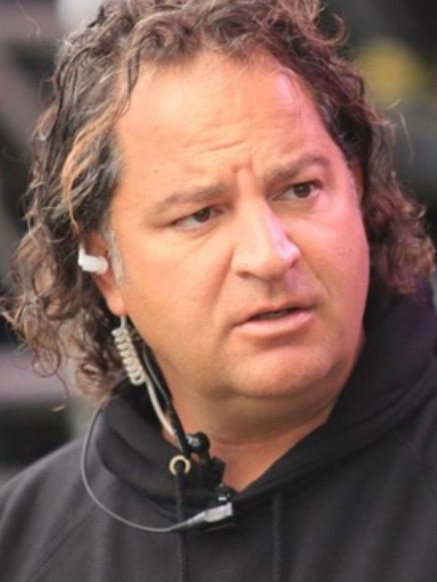
“This year, it’s like: good luck. Things are getting changed at the last minute; consumer confidence is down; attendance numbers are down. Meanwhile, all of us [promoters] have gone out this year and put a bunch of shows on sale, so all the competition is back.
“You’re sitting there going, ‘We’ve got a show in two weeks – can we go?’” he said. “Last year, we did shows with no singing and no dancing. Are people going to accept that this year?”
Zaccaria Concerts has announced outdoor festivals across most states and territories from January to April under its brands Summersalt, By The C and Castaway.
The company will also present select dates on the Red Hot Summer and Grapevine Gathering tours, and was to present the first date of Stewart’s national tour in Perth, now cancelled.
“The amount of anxiety within the industry is just out of control – especially when we thought we had this window where we’re back,” Zaccaria said. “Now, it’s off again. It’s deja vu, everything getting cancelled again. And you wonder how all the independent contractors – and the industry as a whole – is going to survive round two.”




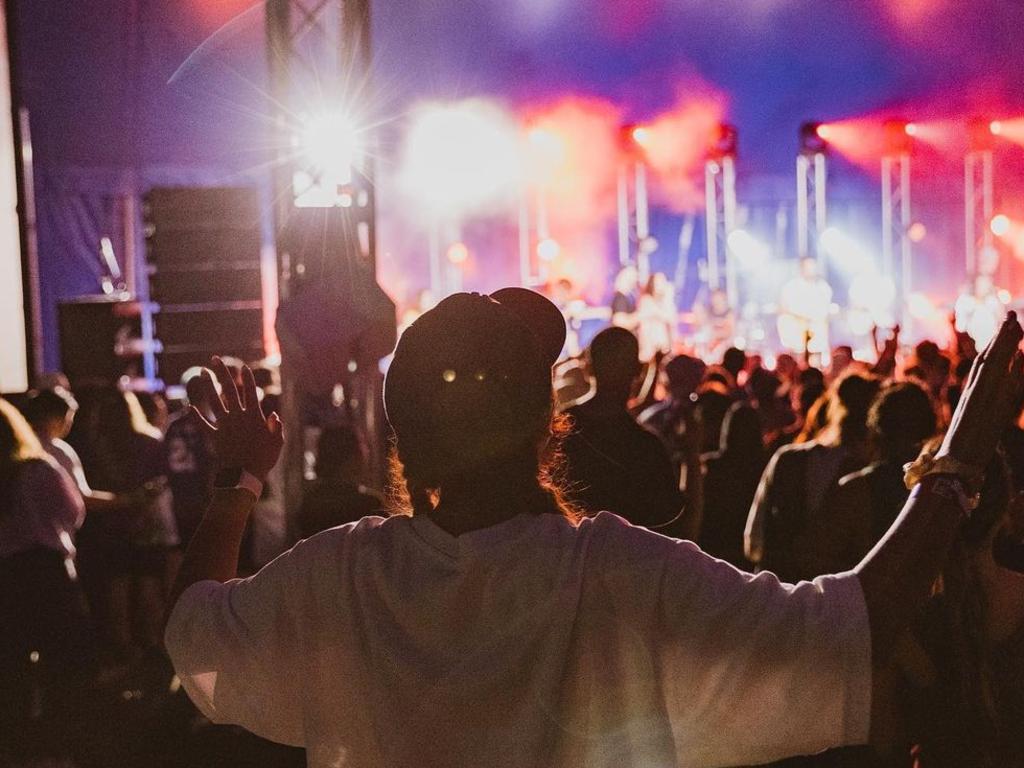
To join the conversation, please log in. Don't have an account? Register
Join the conversation, you are commenting as Logout